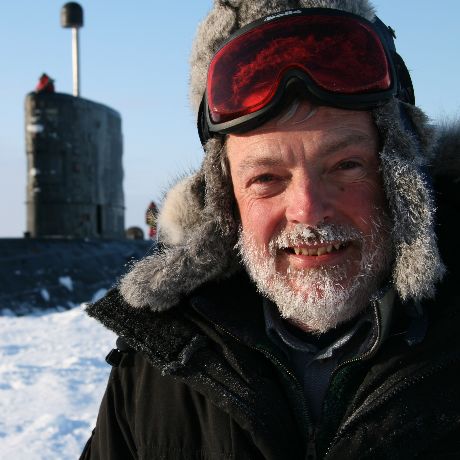Via Vetoio
67100 Coppito AQ
Italia

The recent rapid retreat of Arctic sea ice has been in the news, but this retreat has actually been happening since 1950 and is now reaching the stage where the summer ice cover will soon disappear completely. This is a direct result of global warming, but in its turn the retreat of the ice has feedback effects on other aspects of the climate system, which make the total impact of ice retreat much greater. I discuss the main feedbacks. They include (1) an albedo feedback – as sea ice and snow on land retreat, the average albedo of the Earth is reduced, and this is now equivalent to adding 50% to the emissions of CO2; (2) a sea level feedback – the retreating sea ice creates a warmer atmosphere around Greenland in summer, speeding its melt rate and thus increasing the rate of global sea level rise; (3) a methane feedback – increasing quantities of methane are being emitted from the continental shelves of the Arctic Ocean, and this could accelerate to make a methane pulse with major climate implications; (4) a weather feedback – extreme weather changes seem to be related to the ice retreat and these threaten global food supply; (5) a weakening of the Atlantic thermohaline circulation due to a loss of sea ice from the Greenland Sea, which will reduce the warming rate of western Europe while increasing that of the tropical Atlantic. These are featured in my book “A Farewell to Ice”.
Biografia. Peter Wadhams is Visiting Professor of Climate Risk at the Marche Polytechnic University (Ancona) and Emeritus Professor of Ocean Physics at the University of Cambridge (UK), where he has been Head of the Polar Ocean Physics Group in the Department of Applied Mathematics and Theoretical Physics. Prof. Wadhams is acknowledged internationally as a leading expert on sea ice and polar oceanography and his collaboration with the Royal Navy gave early access to the use of submarines to gather invaluable data on the rapid thinning of Arctic sea-ice. His doctoral thesis “The effect of a sea ice cover on ocean surface waves” was based at Scott Polar Research Institute in Cambridge and he then undertook post-doctoral research at the Institute of Ocean Sciences, Victoria, B.C., Canada, working on sea ice structure and dynamics in the Beaufort Sea and the impact of oil spills, an interest he has maintained throughout his career. He returned to SPRI in 1976 and was Director of SPRI from 1987-1992. He got the W. S. Bruce Medal (1977) for his oceanographic investigations, especially in studying the behaviour of pack ice near Spitsbergen, the North Pole and off east Greenland, and the Polar Medal (1987). He is a member of the Scientific Committee of the European Environment Agency, he has been the president of the International Association for the Physical Sciences of the Oceans Commission on Sea Ice and Coordinator for the International Programme for Antarctic Buoys. He has visited the Polar Regions more often than any other living scientist – 50 times since he was on the first ship to circumnavigate the Americas in 1970 – travelling on foot and by plane, ship, snowmobile and several nuclear-powered submarines of the Royal Navy. He held visiting professorships in various countries and coordinated and contributed to major EU funded polar research projects.
